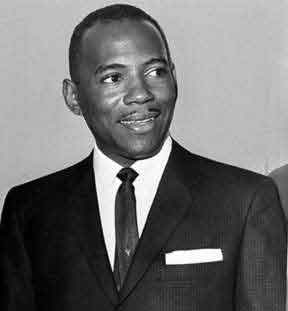James Meredith Admitted To U Of Mississippi 1962

|
In 1962, the United States faced a significant test of its commitment to civil rights and the rule of law when James Meredith, an African American Air Force veteran, sought to enroll at the University of Mississippi, known as Ole Miss. This event became a pivotal moment in the Civil Rights Movement.
James Meredith applied to the University of Mississippi in January 1961, but his application was rejected on racial grounds. Meredith filed a lawsuit against the university, alleging discrimination. After a lengthy legal battle, the Fifth Circuit Court of Appeals ruled in his favor. Despite this, Mississippi officials, including Governor Ross Barnett, vehemently opposed Meredith's enrollment and took measures to prevent it.
On September 10, 1962, the Supreme Court of the United States upheld the Fifth Circuit's decision, ordering that Meredith be admitted to the university. Mississippi Governor Ross Barnett continued to resist this order, invoking state sovereignty and vowing to block Meredith's entry.
Governor Barnett personally intervened on September 20, 1962, by physically blocking Meredith's entry to the university's campus. This act of defiance led to a constitutional crisis, pitting state authority against federal authority. Barnett's actions were met with immediate legal responses, including contempt of court charges.
President John F. Kennedy and Attorney General Robert F. Kennedy were closely monitoring the situation. They engaged in negotiations with Governor Barnett, attempting to resolve the standoff peacefully. However, Barnett remained resolute in his opposition, and the situation escalated.
On September 30, 1962, the Kennedy administration decided to act decisively. President Kennedy issued Executive Order 11053, federalizing the Mississippi National Guard and ordering them to enforce the court's decision. This move was aimed at ensuring Meredith's safe entry to the university and maintaining order.
The presence of federal troops and U.S. marshals on the campus of the University of Mississippi on the night of September 30 led to a violent confrontation. Riots erupted, involving students and outside agitators who opposed Meredith's enrollment. The clashes resulted in two deaths and numerous injuries. Federal forces eventually restored order, and the university grounds were secured.
On October 1, 1962, James Meredith was escorted by federal marshals and the National Guard to register for classes at the University of Mississippi. This marked a historic moment, as Meredith became the first African American student to be admitted to the university. His enrollment was a significant victory for the Civil Rights Movement and demonstrated the federal government's commitment to enforcing court orders and upholding civil rights.
The successful admission of James Meredith to Ole Miss was a watershed moment in the struggle for desegregation and civil rights in the United States. It underscored the federal government's authority to intervene in state affairs when constitutional rights were at stake and set a precedent for future actions to ensure the protection of civil rights.
James Meredith graduated from the University of Mississippi in August 1963 with a degree in political science. His courage and determination, coupled with the federal government's intervention, paved the way for greater racial integration in educational institutions across the South. This event also highlighted the ongoing resistance to desegregation and the challenges that civil rights activists continued to face in their fight for equality.
 >
>